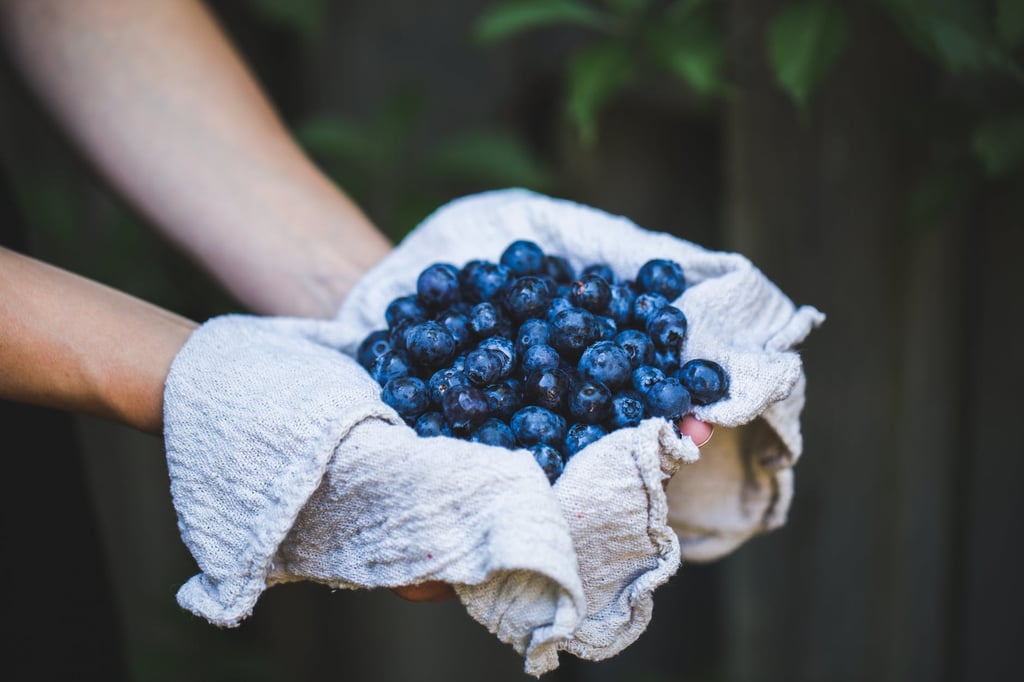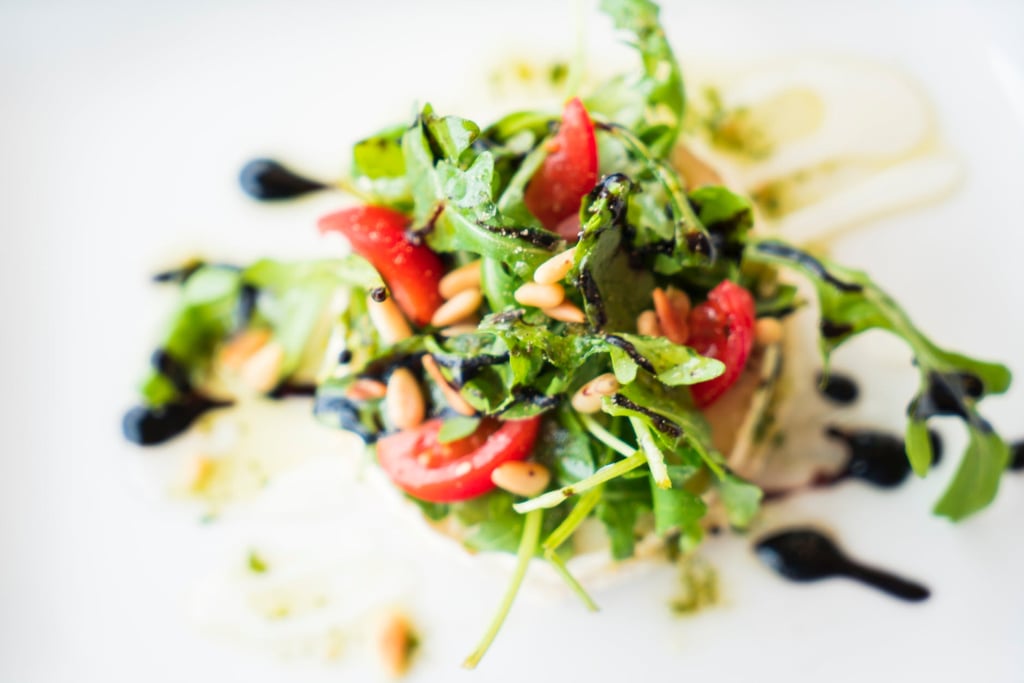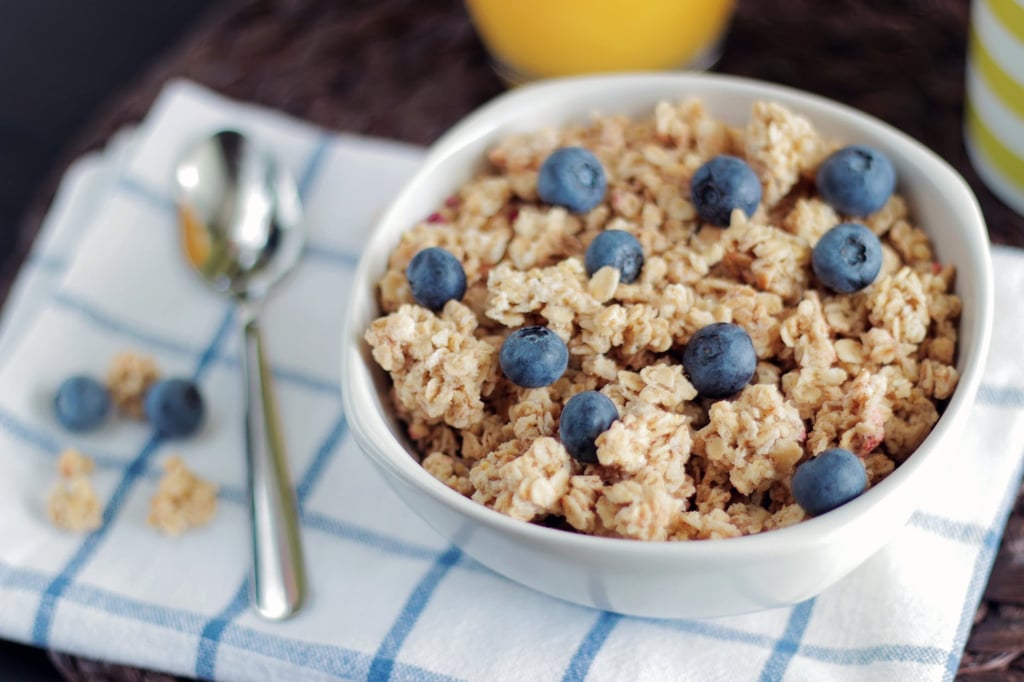You've probably heard a bunch about the anti-inflammatory diet [1] by now and how having too much inflammation in the body is bad for you. It's a real enemy when it comes to putting your health at risk and creating stress. When you're inflamed, you're more likely to put on weight, feel lethargic and irritable, and be more susceptible to illness and disease. Yikes. Needless to say, it's best to keep inflammation at bay.
The good news is you can fight inflammation and keep your body balanced and well through your diet [2] by piling your plate with healthy, nutrient-dense foods that are rich in antioxidants. Here are the 10 anti-inflammatory foods to eat now [3] for heart-healthy and antiageing benefits, along with some delicious flavours to enhance your meals.

Wild Blueberries

"Wild blueberries provide twice the antioxidant capacity of traditional blueberries and are considered one of the top anti-inflammatory fruits," Elizabeth Shaw, MS, RDN, CLT, CPT [5], told POPSUGAR. "These antioxidant-rich super berries [6] are filled with bioactive phytonutrients that give them their deep blue colour, which can protect against a variety of diseases," she says.
"What makes wild blueberries so powerful is that they combat stress in the wild by producing phytochemicals and anthocyanins to protect themselves. It's these naturally occurring compounds that help protect us from inflammation and chronic disease when consumers eat them," she explains. Of course, if you can't find the wild kind, eating normal blueberries will still offer anti-inflammatory benefits, too.
Beans

"Pulses like lentils, chickpeas, and beans all offer anti-inflammatory benefits that help keep your body running at its best! Pulses are a recommended food for hearth health, cancer prevention, and diabetes management," says Shaw. What's more, "In part due to their combination of soluble and insoluble fibre, regular pulse consumption can lower cholesterol and steady blood sugar. Since we know elevated blood pressure and high cholesterol can cause and exacerbate inflammation in the body, focusing on a diet rich in pulses can help you feel better and lead a healthier life," she explains.
There are so many ways to cook with them. Create a topping for avocado toast, use them in a chili, bake them for a lighter brownie, or add them to a smoothie [7], says Shaw.
Avocados

Avocados are a nutrient-rich, heart-healthy food that can help keep your body at its healthiest [8] while decreasing the risk for other factors that contribute to inflammation within the body, says Shaw. "Given that the majority of the fat found within the avocado is unsaturated, they help provide important nutrients that help lower one's risk for cardiovascular disease. Plus, the high-fat content also helps the body absorb fat-soluble vitamins (like A, D, E, and K)," she says.
"Since vitamin E acts as an antioxidant, it's important to make sure your body is absorbing all of this nutrient from foods," she says. There's no wrong way to eat an avocado. "Grab a spoon and eat it straight from the peel, mash it over toast, purée it into a frosting, or slice it and top a burger," suggests Shaw.
Oranges

"Oranges, like cara cara, are a great anti-inflammatory food, largely in part [due] to their stellar vitamin C content. Vitamin C, as I'm sure you've heard, is a wonderful antioxidant that should be consumed in REAL FOOD form, instead of relying on those OTC supplements often sold to banish a cold," says Shaw. Plus, "Research has shown that not only does vitamin C provide anti-inflammatory benefits, but also antioxidant, anticancer, as well as cardioprotective and neuroprotective benefits," she says. Add them to juices and smoothies, make a glaze or sauce for meats and fish, use them in a homemade salad dressing, or just eat them plain.
Beets

"The fiery deep colour of red beets comes from betalain [9], a phytonutrient with strong antioxidant, anti-inflammatory, and chemo-preventive activity characteristics," Los Angeles-based registered dietitian Maggie Moon [10], MS, RDN, and author of The MIND Diet [11], tells POPSUGAR. Beets are also very diet-friendly. "A one-half cup of cooked beets is 40 calories, zero grams fat, 1.5 grams protein, 8.5 grams carbohydrates," says Moon. "Peel and cut, add to boiling water for 15 to 20 minutes, and you've got beets for the week," she says. Use them in a salad with leafy greens, orange segments, and mint, or marinate them in your favourite dressing and then add it to sandwiches, she says. You can also add them to smoothies.
Salmon

There's nothing fishy about eating this fish all the time. "The omega-3 fatty acids in salmon and other fatty fish produce anti-inflammatory compounds [12] called resolvins, protectins, and maresins," says Moon, which can improve your health and longevity. "Three ounces of cooked salmon is 175 calories, 10.5 grams fat, 19 grams protein, [and] zero grams carbohydrates," which can be added to salads or stir-fries. "A simple pan sear with salt and pepper is delicious, quick, and convenient. Dress it up in a showstopping entrée with butter lettuce, blueberries, and pickled red onions," says Moon.
Baby Arugula

This underrated green has excellent anti-inflammatory powers. "Arugula's potent anti-inflammatory power comes from a phytonutrient called erucin [13]that inhibits pro-inflammatory substances, at least in animal studies [14]," says Moon. "Arugula and its relatives in the Brassicaceae family (e.g., broccoli, cabbage, kale) are important parts of an anti-inflammatory eating pattern that protects against cognitive decline," she adds.
Olive Oil

"Phenolic compounds in extra-virgin olive oil reduce inflammation [15], from everyday activities like eating lunch to chronic inflammatory conditions such as heart disease and Alzheimer's," says Moon. In fact, some olive oil phenolics even share some of the same chemical pathways as ibuprofen [16], she adds. Make olive oil your main oil for cooking, dressings, and to drizzle on top of dishes, she says.
Ginger

"One way that anti-inflammatory plant chemicals in ginger work is by blocking the pathways that amplify inflammation [17]," explains Moon, so it's also great for providing stress relief and calming down the body. A teaspoon has about two calories, which makes it perfect for improving the metabolism [18], basically calorie-free. "Shred and add one to two teaspoons into your smoothie mix," says Moon. Wash, peel, slice, and store it in the freezer so you always have fresh ginger for recipes. "Take out just what you need for stir-fry dishes, soups, and more. I learned this trick from my mom; there's a lot of ginger in Korean cooking," she says.
Raw Oats

"Raw oats are arguably one of the best carbohydrates to eat, as they are a resistant starch that acts as a prebiotic and feeds the good bacteria in our gut that in turn decreases whole-body inflammation," Arti Lakhani, MD, [19] an integrative oncologist from Hinsdale, IL, said to POPSUGAR. "Raw oats also move slowly through our guts, keep us fuller longer, and decrease glucose spikes, which of course decreases inflammation," she says. You can always make an oatmeal, or you can also make a snack out of it that's raw: mix together dark chocolate, berries, nuts, and cinnamon, and store it in the fridge. Just keep the serving size to one-third to one-half of a cup for a healthy snack, she says.